As a black citizen of the U.S., tracing my family history was relatively easy until I passed the 1870s.
Slavery can throw one heck of a curve ball backed by a brick wall for many genealogists.
Fortunately, there are ways to bust through the wall and not be taken out by the pitch.
First, you’ll need to know whether or not your ancestor was free or enslaved during the early 1860s.
If free, use the same channels you would for any other free person: census records, court orders, land records, vital records, etc., working backward through time and add manumission records to your search. FamilySearch makes Finkleman’s State Slavery Statutes available on microfilm so you can see if your ancestor’s state required free blacks to register.
Slavery can throw one heck of a curve ball backed by a brick wall for many genealogists.
Fortunately, there are ways to bust through the wall and not be taken out by the pitch.
First, you’ll need to know whether or not your ancestor was free or enslaved during the early 1860s.
If free, use the same channels you would for any other free person: census records, court orders, land records, vital records, etc., working backward through time and add manumission records to your search. FamilySearch makes Finkleman’s State Slavery Statutes available on microfilm so you can see if your ancestor’s state required free blacks to register.
If enslaved, your job may be more difficult. Begin by looking at the 1870 census and figuring out where the person lived. Next, look for a white person with that same last name on the 1860 census for the same area. If you find it, look for the white person on the 1870 census and compare the dollar value of their property. A drop from 1860 to 1870 can be indicative of the loss of slaves. Locate the white person on the 1860 Slave Schedules and see if there is an individual close in age to your ancestor.
You can also use the records of the Freedman’s Bureau and the Freedman’s Bank records to try to find your ancestor.
Probate records may help. While perhaps not named in the actual will, slaves were sometimes named and usually at least described in the inventory of the estate.
The online presence of records pertaining to enslaved and free black Americans grows daily:
Afrigeneas contains:
The Library of Congress “Born in Slavery” Collection consists of over 2300 slave narratives arranged in volumes alphabetically by state. The narratives were collected between 1936 and 1938 in 17 states.
The University of North Carolina Greensboro’s Digital Library on American Slavery holds over 2300 North Carolina runaway slave advertisements, the Trans-Atlantic Slave Trade Database, slave deeds of North Carolina, and slave-era insurance registries.
The Freedman’s Bureau Online has freedman labor and marriage records as well as Murders and Outrages.
Lowcountry Africana focuses on African-American genealogy in South Carolina, Georgia and Florida and contains voter registrations, plantation records, Freedman’s records, research guides and finding aids.
Remember, many websites continue to add records so be sure to either check back for updates or sign up for alerts.
Good luck!
You can also use the records of the Freedman’s Bureau and the Freedman’s Bank records to try to find your ancestor.
Probate records may help. While perhaps not named in the actual will, slaves were sometimes named and usually at least described in the inventory of the estate.
The online presence of records pertaining to enslaved and free black Americans grows daily:
Afrigeneas contains:
- census records or schedules pertaining to African-Americans from 26 states.
- death records database that allows you to search by surname, first name, death city or death year
- photo collection searchable by name
- slave data collection searchable by surname containing wills, inventories, bible records, slave manifests, etc.
The Library of Congress “Born in Slavery” Collection consists of over 2300 slave narratives arranged in volumes alphabetically by state. The narratives were collected between 1936 and 1938 in 17 states.
The University of North Carolina Greensboro’s Digital Library on American Slavery holds over 2300 North Carolina runaway slave advertisements, the Trans-Atlantic Slave Trade Database, slave deeds of North Carolina, and slave-era insurance registries.
The Freedman’s Bureau Online has freedman labor and marriage records as well as Murders and Outrages.
Lowcountry Africana focuses on African-American genealogy in South Carolina, Georgia and Florida and contains voter registrations, plantation records, Freedman’s records, research guides and finding aids.
Remember, many websites continue to add records so be sure to either check back for updates or sign up for alerts.
Good luck!
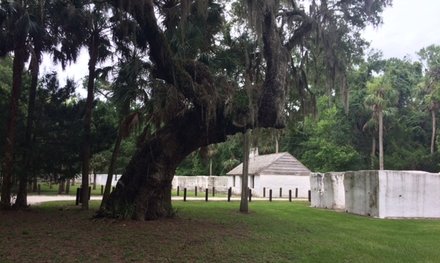
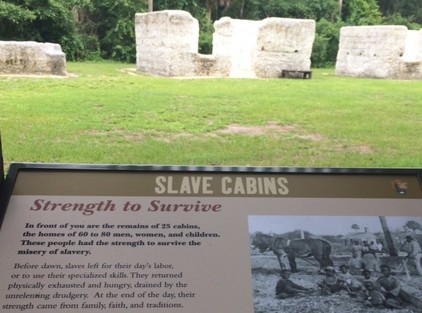

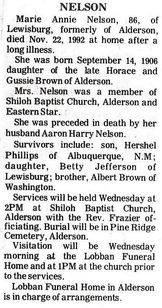
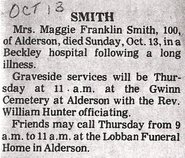
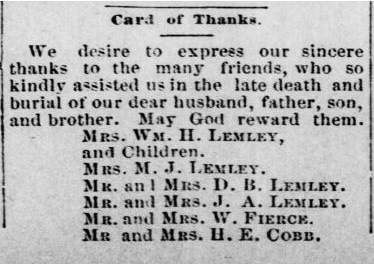
 RSS Feed
RSS Feed
